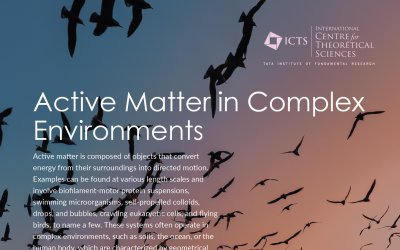Active matter is composed of objects that convert energy from their surroundings into directed motion. Examples can be found at various length scales and involve biofilament-motor protein suspensions, swimming microorganisms, self-propelled colloids, drops, and bubbles, crawling eukaryotic cells, and flying birds, to name a few. These systems often operate in complex environments, such as soils, the ocean, or the human body, which are characterized by geometrical disorder, chemical fields, and (non-Newtonian) hydrodynamic flows. These environmental heterogeneities affect both their individual swim gait and transport behavior as well as collective phenomena, such as motility-induced phase separation and tissue formation. Major advances in experimental methods, ranging from the development of novel microscopy tools to the design of tailored microfluidic devices, together with continuously evolving data analysis methods make possible the study of active materials in controlled, complex surroundings by resolving different length and time scales.
This research school aims at providing early-career scientists a pedagogical introduction into the field of active matter in complex environments and an overview of state-of-the-art experimental, theoretical, and engineering approaches to address this exciting research topic. Fundamental concepts will be taught in a series of lectures from renowned experts in the field. In addition, the school will highlight emerging research directions by offering a series of scientific talks by leading experts from across the globe.
Accommodation will be provided for outstation participants at our on campus guest house.
ICTS is committed to building an environment that is inclusive, non discriminatory and welcoming of diverse individuals. We especially encourage the participation of women and other under-represented groups.
Eligibility Criteria: Ph.D. students and Postdocs (Physics, Chemistry, Mathematics, Biology, Engineering)
 icts
icts res
res in
in

